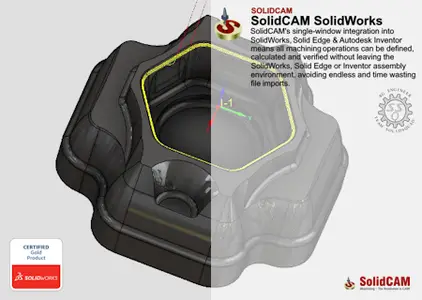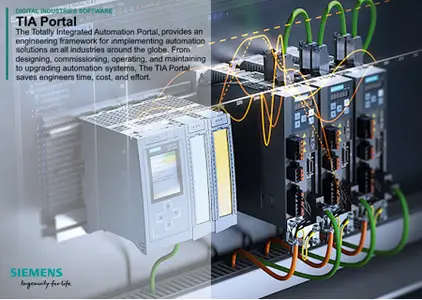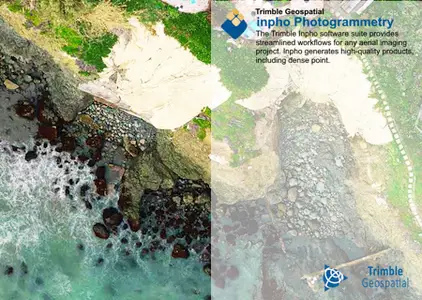Altair EDEM 2024.1 Professional Win x64

Free Download Altair EDEM 2024.1 | 1.3 Gb
Altairhas releasedEDEM 2024.1, the market leading Discrete Element Method (DEM) software for bulk and granular material simulation
Owner:Altair
Product Name:EDEM
Version:2024.1 Professional
Supported Architectures:x64
Website Home Page :www.altairhyperworks.com
Languages Supported:english
System Requirements:Windows *
Size:1.3 Gb
.
What’s New in EDEM 2024.1 – Release Highlights
Altair EDEM is available on Altair One and continues to prove its market leadership by setting the industry standard for the Discrete Element Method (DEM). Now more powerful and easier to use than ever – EDEM 2024.1 sees the addition of concave polyhedral particles enabling users to reproduce more complex physics when needed. On top of that, a new particle boundary condition allows for a simplified simulation set up. Finally, EDEM’s unique powders database has been expanded by now including 15,000 new material models calibrated against the FT4 rheometer basic flowability energy measurement.
Here are some more details of the key highlights from this latest release.
Simulate All Polyhedral Particle Shapes
EDEM can now simulate all polyhedral particle shapes with the addition of concave polyhedral particles. This is another significant milestone for EDEM with the introduction of full support for concave shapes – all polyhedral particle shapes are fully supported and can be deployed in simulations alongside convex polyhedral, multi-sphere and sphero-cylinder particles. Particle shapes can be imported as CAD or pre-defined meshes (STL, OBJ, etc.) and must form a single closed volume, but no additional steps are required from the user.

Previously, there were applications where a more complex shape was required to accurately reproduce the interaction behavior with the equipment or process being simulated, and this was limited to only convex polyhedral shapes – now users have the choice to simulate a wider range of shapes on GPU where several advanced simulations can be achieved with complex shapes.

Utilizing EDEM’s intra-particle coating analysis capabilities, concave shapes such as "potato chips" can be simulated to optimize the appropriate distribution of the coating seasoning on the surface to improve end-product quality.
The main characteristic of this new capability is the unparalleled performance achieved! As an example of this, a 1 million particle simulation using a mid-range GPU (Nvidia Titan RTX) only requires 8.4GB of memory and less than 8 hours to run.
Simplified Workflow for Particle Kinematics
A new boundary condition (Rigid Link) to assign the velocity from a geometry section to a specified group of particles has been added for a simplified simulation set up. The Rigid Link condition can be applied when the particle is created, on contact with a specific geometry section, or at a pre-defined time.
This capability is ideal for attaching fibers, roots, brushes, etc to a moving or static geometry section. For example, when applying kinematics over particles for fixing brushes to a vehicle and transferring the geometry properties to the particle, like the street sweeper example shown here, or, for example in agriculture, when fixing crops to the ground / grasses to soil beds or fixing an electrode to the material bed for battery calendering.

Assigning kinematics to particles has been difficult and this capability will enable more flexibility when users require to assign movement to particles. Rigid link is not only easier to set-up; it is also cheaper to run.
Expanding the World First Powder Database

What else?
Beyond these new capabilities and improvements, this release also brings some other important developments, including:
– Normal and lognormal distributions by Mass Fraction. This feature is designed to improve workflow when defining size distributions by mass. Previously the size distribution would have to be calculated externally to EDEM and then entered as a user-defined distribution, but now the distribution can be defined in the EDEM GUI.
– Export data in Analyst, now includes Variance and Standard Deviation as Queries Types for easier analysis, like mixing, and updated options to remove additional text in columns making easier to read and parse data with python scripts.
– EDEMpy updated to add better support for factories, EDEM API models and the format for setting parameters of physics models has been changed to be more consistent.
– Grid bin groups weren’t exporting per bin with Simulator Queries.
– EDEM could crash when loading a truncated deck.
– EDEM no longer inverts the minimum and maximum values when opening a deck with random initial velocity.
– Multiple geometries can be selected, and common parameters are available to edit.
– If the simulation attempts to start with lower cap being greater than upper cap, the user will be informed with an error message instructing them to revise the values and fix manually. Additionally, if the lower cap is greater than the upper cap, then the spinbox will turn red. This applies to normal, lognormal and random distributions.
– API Particle Body Force plugins using v3.0 or v3.1 were ignored due to missing setter.
– A physics-linked material block would not transfer plugin dialog information.
– Redundant checks for polyhedral particle shape were causing delays at the start of simulation.
– Conflicts could occur if the same name was used between Particle, Meta-Particle or Material. Names must now be unique across these areas.
– Export Data to STL script is now fixed when exporting geometry data.
– API GUI not detecting valid ranges for some fields in the model parameter dialog.
– CUDA Solver was not setting non-zero default values for custom contact properties.
– EDEM could crash if a simulator export query was enabled for particle coordination number.
– Export > Breakage Particle Size Distribution script has been fixed.
– Particles were not being broken correctly when using the CUDA solver on Linux with the Tavares UFRJ Breakage model.
– Particles may not have been displayed in the simulator on completing a simulation run or on switching from the creator/analyst to simulator.
– EDEMpy: added new setDomainMinMax function that avoids the checks in the separate calls setDomainMin and setDomainMax. These would fail if setting a new maximum below the current minimum and vice versa.
– EDEMpy: setting only the particle physical radius would result in the contact radius not being defined correctly.
– EDEMpy: createBoxGeometry() now creates boxes in their specified location.
– EDEMpy: Heat Conduction parameters are now separated between surface- surface and surface-geometry parameters.
– Python scripts would fail from EDEMCal as it was not correctly detecting the python path.
– Paths to EDEMpy scripts are now checked for validity before running in EDEM.
– Opening decks in ‘write’ mode with EDEMpy no longer corrupts existing External Forces.
– Calibration Kit script files were not correctly included in the installer.
Altair EDEMis high-performance software for bulk and granular material simulation. Powered by state-of-the-art Discrete Element Modeling (DEM) technology, EDEM quickly and accurately simulates and analyzes the behavior of granular materials such as coal, mined ores, soils, fibers, grains, tablets, and powders. EDEM simulation provides engineers with crucial insight into how those materials will interact with their equipment during a range of operation and process conditions. EDEM is used for virtual testing of equipment that handles or processes bulk materials in the mining, equipment manufacturing and process industries. Companies worldwide use EDEM to optimize equipment design, increase productivity, reduce operational costs, shorten product development cycles and drive product innovation.
Altair EDEM 2024includes many important updates and improvements. Central to this release, we have made great progress by delivering key updates to the leading ‘Tavares UFRJ model’ for particle breakage applications, providing a more realistic behavior representation for mineral processing equipment design in the mining industry. In addition, we have made important improvements to the new model for particle-based paste material (‘Hydrodynamic Lubrication model’) benefitting battery manufacturing, electronics, and pharmaceuticals. Other improvements include EDEMpy now supports Continuum Analysis Data, the updated export for SimSolid will improve the 1-way coupling for structural analysis, and the EDEM Coupling Library has been updated to improve functionality and performance when integrating EDEM with other CAE software, with special emphasis on CFD-DEM coupling, plus more.
What’s New in Altair EDEM 2024 – Release Highlights
Altairis a global technology company that provides software and cloud solutions in the areas of product development, high performance computing (HPC) and data analytics. Altair enables organizations across broad industry segments to compete more effectively in a connected world while creating a more sustainable future.

DONWLOAD FROM RAPIDGATOR
http://peeplink.in/5b3a4e0c5775
TakeFile
kshkw.Altair-EDEM-2024-1.rar.html
Fikper
kshkw.Altair-EDEM-2024-1.rar.html



